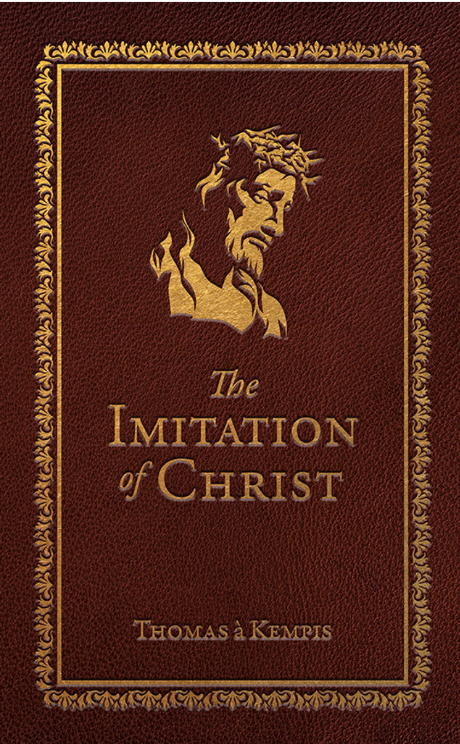The Imitation of Christ and its author, Thomas à Kempis, need no introduction. Said to have made more saints than any book after the Bible, The Imitation of Christ is a treasury of divine wisdom centered around the example of Christ, our suffering servant.
To many, this seems a hard saying:
“Deny thyself, take up thy cross, and follow Jesus” (Matt. 25:41).
But it will be much harder to hear that last word:
“Depart from me, ye cursed, into everlasting fire” (Matt. 25:41).
For they that at present willingly hear and follow the word of the cross shall not then be afraid of eternal condemnation. This Sign of the Cross will be in Heaven when the Lord shall come to judge. Then all the servants of the cross, who in their lifetime have conformed themselves to Him that was crucified, shall come to Christ their judge with great confidence.
Why then art thou afraid to take up thy cross, which leads to a kingdom?
What We Find in the Cross
In the cross is salvation; in the cross is life; in the cross is protection from thine enemies. In the cross is infusion of heavenly sweetness; in the cross is strength of mind; in the cross is joy of spirit. In the cross is the height of virtue; in the cross is the perfection of sanctity. There is no health of the soul nor hope of eternal life but in the cross.
Take up, therefore, thy cross and follow Jesus, and thou shalt go into life everlasting.
He is gone before thee carrying His own Cross; and He died for thee upon the Cross that thou mayest also bear thy cross and love to die on the cross.
Because if thou die with Him thou shalt also live with Him, and if thou art His companion in suffering thou shalt also partake in His glory.
Rejecting Our Cross
If thou carry the cross willingly, it will carry thee and bring thee to thy desired end; to wit to that place where there will be an end of suffering, though here there will be no end.
If thou carry it unwillingly thou makest it a burden to thee and loudest thyself the more, and nevertheless thou must bear it.
If thou fling away one cross, without doubt thou shalt find another and perhaps a heavier.
Dost thou think to escape that which no mortal ever could avoid? What saint was there ever in the world without his cross and affliction? Our Lord Jesus Christ Himself was not one hour of His life without suffering: “It behooved Christ to suffer,” saith He, “and rise again from the dead, and so enter into his glory” (Luke 24:46).
And why dost thou pretend to seek another way than this royal way, which is the way of the holy cross?
The Value of Our Suffering
Set thyself then like a good and faithful servant of Christ, to bear manfully the Cross of thy Lord, crucified for the love of thee. Prepare thyself to suffer many adversities and diverse evils in this miserable life; for so it will be with thee wherever thou art, and so indeed wilt thou find it wheresoever thou mayest hide thyself.
It must be so, and there is no remedy against the tribulation of evil and sorrow but to bear them patiently. Drink of the chalice of thy Lord lovingly if thou desire to be His friend and to have part with Him.
Leave consolations to God, to do with them as best pleaseth Him. But prepare thou thyself to bear tribulations, and account them the greatest consolations; for the sufferings of this life bear no proportion to the glory to come, although thou alone couldst suffer them all.
If, indeed, there had been anything better and more beneficial to man’s salvation than suffering, Christ certainly would have showed it by word and example.
For He manfully exhorts both His disciples that followed Him and all that desire to follow Him to bear the cross, saying:
“If anyone will come after me, let him deny himself and take up his cross and follow me” (Luke 9:23).
This article is taken from a chapter in The Imitation of Christ by Thomas à Kempis, which is available from TAN Books. You can also listen to The Commentaries: The Imitation of Christ with Fr. Robert Nixon as your guide through this 15th-century seminal masterpiece of Christian spirituality.










